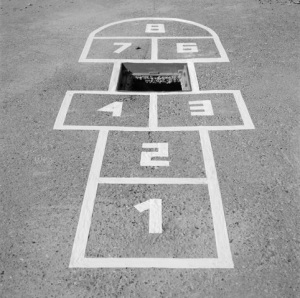 There is quite a remarkable article at The Huffington Post on a subject that I have myself touched upon earlier and even earlier. What makes it remarkable is not so much the fact that it appears on the most popular blog on internet but rather the fact that a topic like this can be a subject of a serious debate and contemplation in America – which is evidenced by a fact that the post in question has already been backlinked by a “serious” economic blog such as Baseline Scenario.
There is quite a remarkable article at The Huffington Post on a subject that I have myself touched upon earlier and even earlier. What makes it remarkable is not so much the fact that it appears on the most popular blog on internet but rather the fact that a topic like this can be a subject of a serious debate and contemplation in America – which is evidenced by a fact that the post in question has already been backlinked by a “serious” economic blog such as Baseline Scenario.
Now, before my libertarian friend from Lithuania gets himself all worked up over this: I find the actual suggested idea of one huge credit union called BforA, shall we say, a little spooky, and can immediately think of several things that can go very wrong with this. That being said, the underlying point of the argument is fundamentally valid and something that I do believe needs to be addressed. And the point is – the financial system has, from its never too humble but yet limited origins, now became a public utility, something that plays a major role in all of our’s everyday lives. The failure of that system can (and increasingly threatens to) be a catastrophe of similar order of magnitude as a major flood or orcane – and to be sure, has also been depicted as such. However, there is an important distinction: unlike Katrina, the Market is a human institution. And while you can’t really hold the Gulf Stream responsible for hurricanes that pound the East coast of the US every year, you can expect economic institutions to make sense and be accountable. Right now, however, they are not.
For all the power and influence the financial system has in our lives we have next to no control over it. And when it fails, we have, collectively, no choice but to bail it out. Letting it to self-destruct and re-emerge is an option for some parallel universe, not ours. So the question becomes one of how to best do it, how to achieve the situation where the financial system and economy as a whole would be both controllable and accountable towards those who currently have a stake in it only when things get bad?
The least disruptive way that could be hoped to be of any help would be extending and cranking up the regulatory framework. While certainly better than doing nothing, this is only a partial measure and is almost certain not to live up to the hopes – and for a simple reason that regulation is necessarily reactive. It is next to impossible to regulate something that doesn’t yet exist and once you get to the point of being able to regulate, the damage may well already have been done. Also, this adds very little in terms of actual accountability – it simply sets some additional, hopefully more stringent rules and closes some loopholes.
What this leaves us with is trying to figure out a way to incorporate the world of economy and finance into the broader social fabric of democracy. However, given the amount of vested interest combined with the power of that interest currently enjoying makes it a struggle up a very very steep hill.

Comment-baiting is not cool 🙂
Was a simple anticipation, not baiting 🙂
Frankly, my libertarianism aint what it used to be.